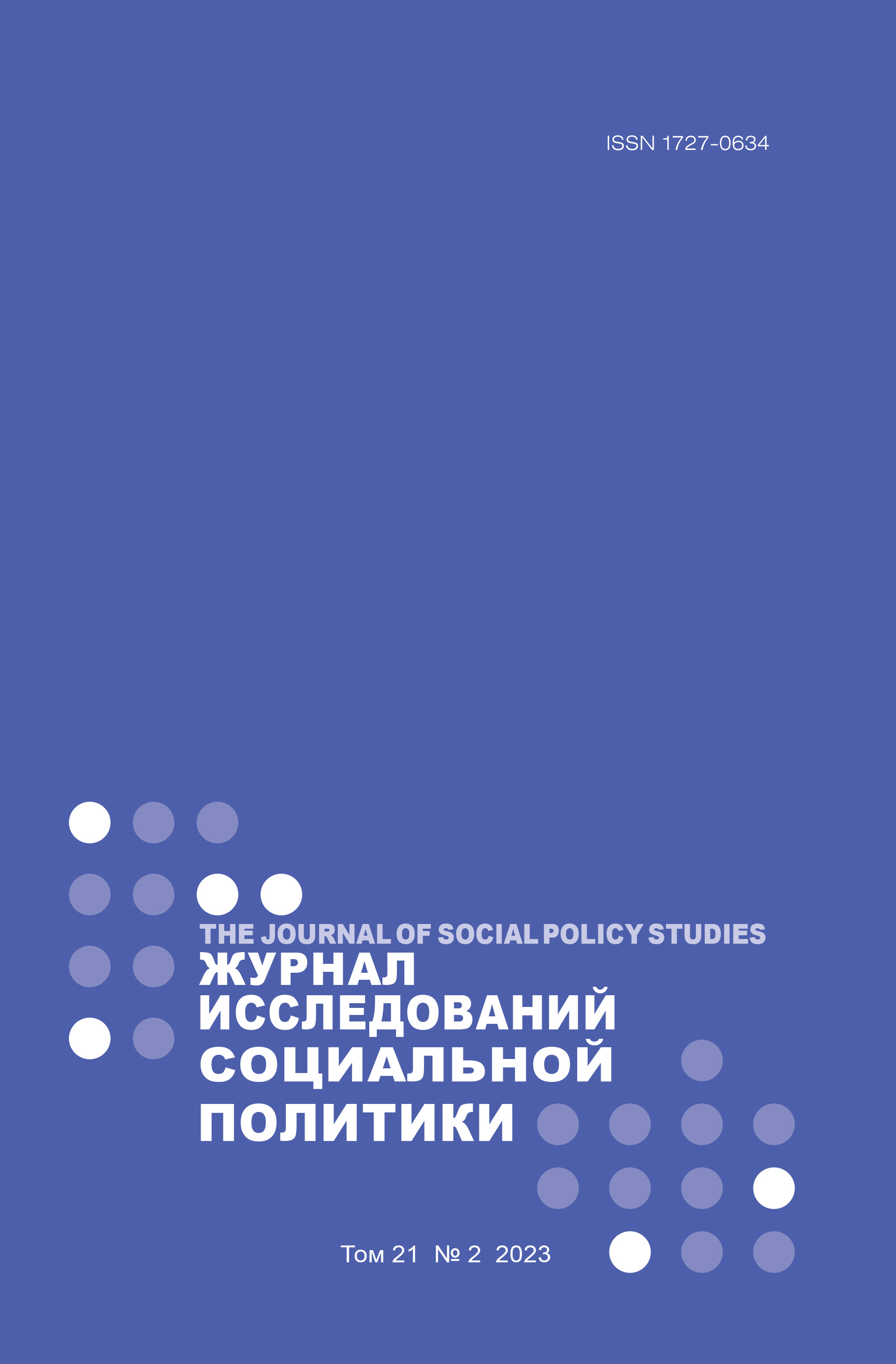Welfare State Transformation in the Post-Soviet Countries: Academic Discussion and Research Agenda
Abstract
This article presents a critical reflection of the academic debate on features, factors, and results of the welfare state transformation in the post-Soviet space. The starting point is Linda J. Cook’s monograph on post-communist welfare states, based on an adaptation of Esping-Andersen’s classic typology. Drawing on the research literature on social policy, policy analysis, and political science, we present key research findings and discussions. What impacts social policy reforms, their successful implementation or resistance to them, what role do interest groups play, and what is the effect of social reforms for society? We present a discussion about the importance of political regime dynamics and reduction of opportunities for interest representation, as well as changes in the relationship between federal and regional governments. These studies allow us to draw a conclusion about the mechanisms of creation and reproduction of inequality not only between different social groups, but also between regions. An analysis of the interest groups’ structure demonstrates the role of non-state and international actors in initiating social reforms. We turn to the discussion of path-dependence and institutional inertia to explain the results of the transformation of the welfare state. To conclude, we propose three future research agenda venues. First, we point out the need to analyze the regional features of ensuring social well-being in order to understand the national model of the welfare state. Second, we see the importance of exploring the dilemma of autocracies in maintaining the welfare of society without risking the expanding of social demands. Ultimately, we question the adequacy of classical welfare state theories in the context of the rising dictatorship and de facto martial law.















